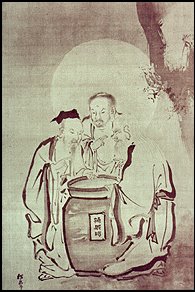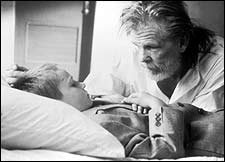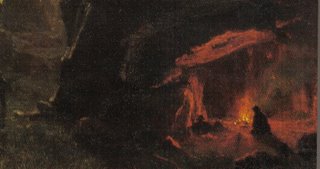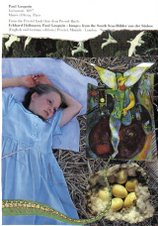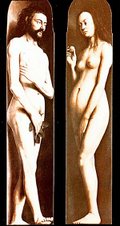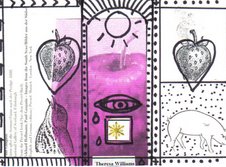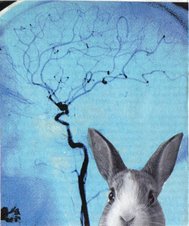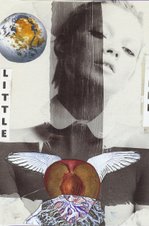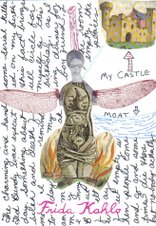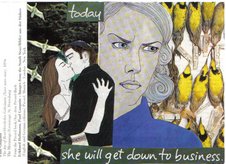
Photo: Nick Drake
I've started a new blog called "Reflective Teaching." It's mainly for myself, so I didn't enable it to accept comments. I want to keep track of my thoughts about teaching for at least two semesters. We'll see where it goes from there. Once in a while, I will share some of the entries from "Reflective Teaching" on this blog. The purpose of the "Reflective Teaching" blog is to help me work out some of my feelings about how my teaching and my creative life are related. Below is the first entry:
The great and mighty go their way unchecked. All the hope left in the world is in the people of no account-- Ursula K.LeGuin
This is my first entry in this Reflective Teaching blog. The blog is inspired by several discussion sessions I attended at Bowling Green State University. I attended the sessions because for a long time my creative life and my teaching life felt like separate things. I told the group that if I wasn't able to resolve this, I would have to quit teaching.
The group was sympathetic. And simply through the act of expressing my dilemma out loud, I began to feel better. I began to think I might be able to find a solution to my feelings of being stilted and at an intellectual and spiritual dead end.
I've been teaching since 1985, a little more than twenty years. I know people do get burned out from teaching, but I believe it doesn't have to be this way. Shouldn't teaching energize us? Energize our creative lives?
It is Saturday, and the last day of class for Spring Semester 2006 was yesterday. I'm listening Nick Drake CDs. A few weeks ago, a young man in my Native American Literature class gave me a CD he burned for me. It has some of his favorite music on it: including "River Man" by Nick Drake.
Listening to "River Man" for the first time, I could understand why my student was so attracted to Drake's music. When I looked up information on Nick Drake, an artist I'd never heard of, I saw his music described as being "Autumnal." Although Nick Drake was young when he made his albums and young when he died, he did, indeed, have an Autumnal spirit. Drake was wise; his music sloughs off the garish leaves and becomes something simple and stark. Drake lived his life deep inside his spirit.
Now, listening to Nick Drake on my stereo, I think of my student leaving class late Thursday afternoon past, wearing the same dark pair of sunglasses as when he'd given his reading in front the class just days before. My student had read his own haunting prose about his struggles with clinical depression, which Nick Drake also had.
I was out in the hallway because the students were finishing up a test and then doing the end of term course evaluations. We stood there, my student and I, saying our good-byes. I thanked him for sharing his music with me and told him I'd ordered Nick Drake CDs and looked forward to receiving them.
My student said, "An English Professor shared Nick Drake with me. It makes me feel good that I can complete the circle by passing Drake on to somebody new." His eyes were hidden by the glasses, which disappointed me, because I enjoy seeing his thoughtful eyes, but I understood. He'd been keeping late nights studying, doing his final projects, and perhaps struggling with his inner demons, too. He told me he was "Beat," and his eyes must have shown it.
Throughout the semester, as we were discussing the literature, this student would laugh quietly and nod his head: he obviously identified strongly with the themes in the pieces we read, especially the theme of the struggle for survival.
Listening to Nick Drake now, I identify with his acceptance of the ephemeral condition of our lives:
Fame is but a fruit tree
So very unsound.
It can never flourish
'til its stock is in the ground ...
Life is but a memory
Happened long ago
Theatre full of sadness
For a long forgotten show
Seems so easy
just to let it go on by
'til you stop and wonder
Why you never wondered why
Safe in the womb
Of an everlasting night
You find the darkness can
Give the brightest light...
The lines, You find the darkness can / Give the brightest light remind me of what Viktor Frankl said of survival and the Holocaust experience: What is to give light must endure burning.
When I think of my student standing there in his sunglasses in that darkened hallway of University Hall on the campus of Bowling Green State university, I think of Frankl, of burning. My student is a survivor; he is burning to survive.

